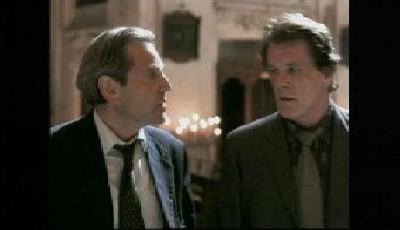

Rather, in the divine begetting, the Father considers or thinks of himself. But in the Trinity, this is not the case, since the divine nature is pure spirit, without a body and therefore without a sex. How the Son is begotten is different from human generation, which involves sexual intimacy. Thus Jesus, who is begotten (not made) shares fully in the one divine nature of the Father. We do not say he makes a child rather we say that the child is begotten by him. But when a man fathers a child, that child shares his human nature.

In human terms, a man may make something out of wood, steel or clay, but what is made does not share his nature. How is the Son begotten, and how can this relate to the biological relationship of fatherhood as humans experience it?Īnswer: In saying that Jesus, the Second Person of the Trinity, is begotten we are asserting that he is not a creature, but is of the same divine nature as the Father. Question: I am curious about how the names Father and Son in the Trinity relate to the reality of the first two Persons. As such, it is a beautiful story of conversion and repentance. Accepting his punishment and that he is guilty, he also acknowledges that Jesus is innocent. Luke may simply be focusing on the end of the story wherein the good thief, whom tradition names “Dismas,” repented of his earlier wrath (recorded by Matthew and Mark). But such a strong conclusion is not necessary. Some hold that Luke’s account flat-out contradicts Matthew and Mark. The text says one thief eventually rebuked the other, saying: “‘Have you no fear of God, for you are subject to the same condemnation? And indeed, we have been condemned justly, for the sentence we received corresponds to our crimes, but this man has done nothing criminal.’ Then he said, ‘Jesus, remember me when you come into your kingdom.’ He replied to him, ‘Amen, I say to you, today you will be with me in Paradise'” (Lk 23:39-43). Luke however adds the detail that the “good” thief seems to have repented of this. Mark concurs, “Those who were crucified with him also reviled him” (Mk 15:32, ESV). And so we see that Matthew records, “And the robbers who were crucified with him also reviled him…” (Mt 27:44, English Standard Version). But Luke adds a further detail that the others lack. Matthew and Mark record both robbers as reviling (some versions use “abusing”) Jesus. So how is one to reconcile that state of mind with the commonly held view of him being the good thief?Īnswer: All four Gospels agree that Jesus was crucified between two robbers (or criminals). Both Matthew and Luke say that he, like the bad thief and other bystanders who mocked Our Lord on the cross, verbally rebuked and abused Our Lord. Question: I have a question about the so-called good thief.


 0 kommentar(er)
0 kommentar(er)
